The element potassium plays a pivotal role in our bodies. It’s found in all our cells, where it regulates their volume and pressure. To do this, our bodies carefully control potassium levels so that the concentration is about 30 times higher inside cells than outside. Potassium works closely with sodium, which regulates the extracellular fluid volume and has a higher concentration outside cells than inside. These concentration differences create an electrochemical gradient, or a membrane potential.
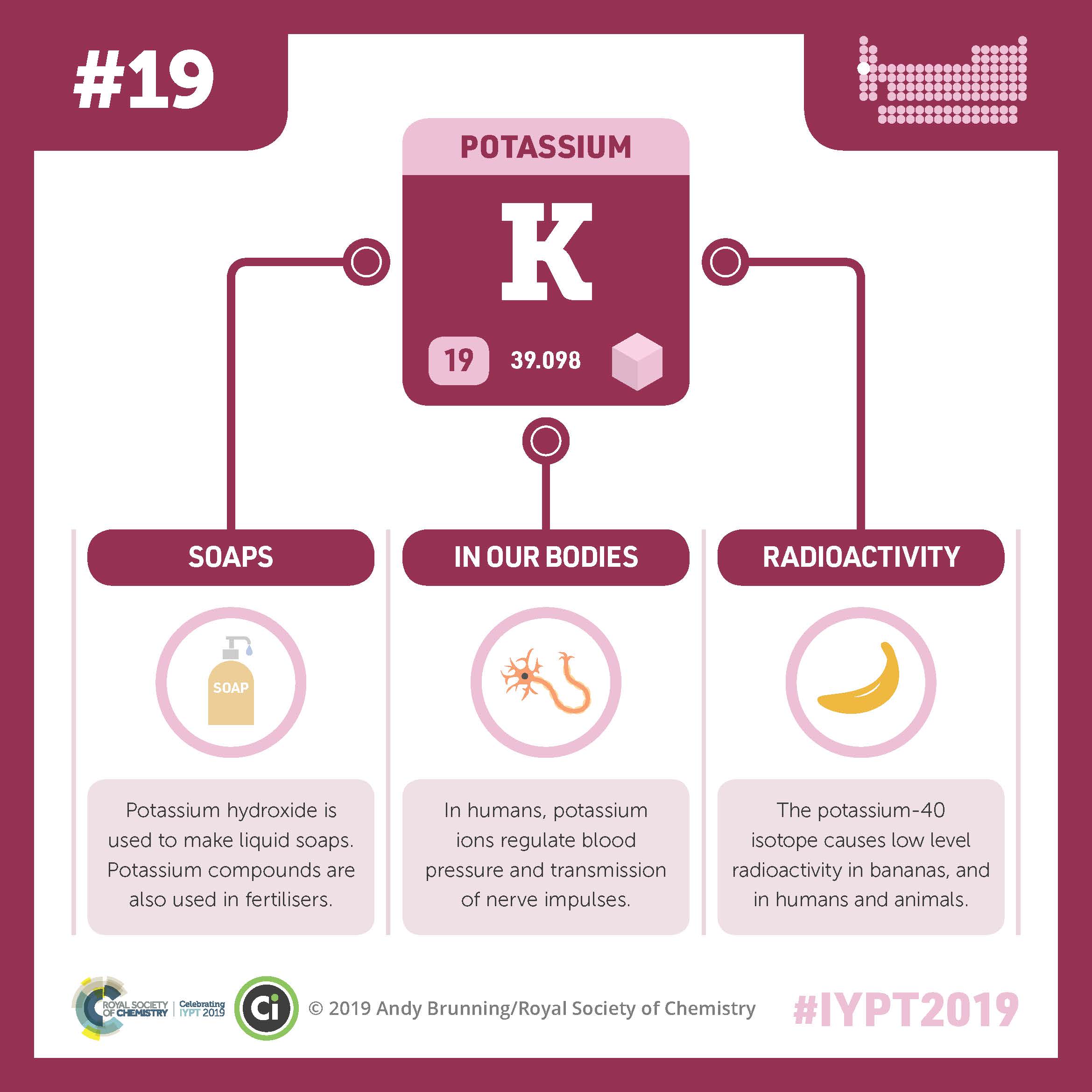 Potassium is the primary regulator of the pressure and volume inside cells, and it’s important for nerve transmission, muscle contraction, and more. Credit: Compound Interest CC BY-NC-ND 4.0. Click to enlarge.
Potassium is the primary regulator of the pressure and volume inside cells, and it’s important for nerve transmission, muscle contraction, and more. Credit: Compound Interest CC BY-NC-ND 4.0. Click to enlarge.
Pump Up the Pressure
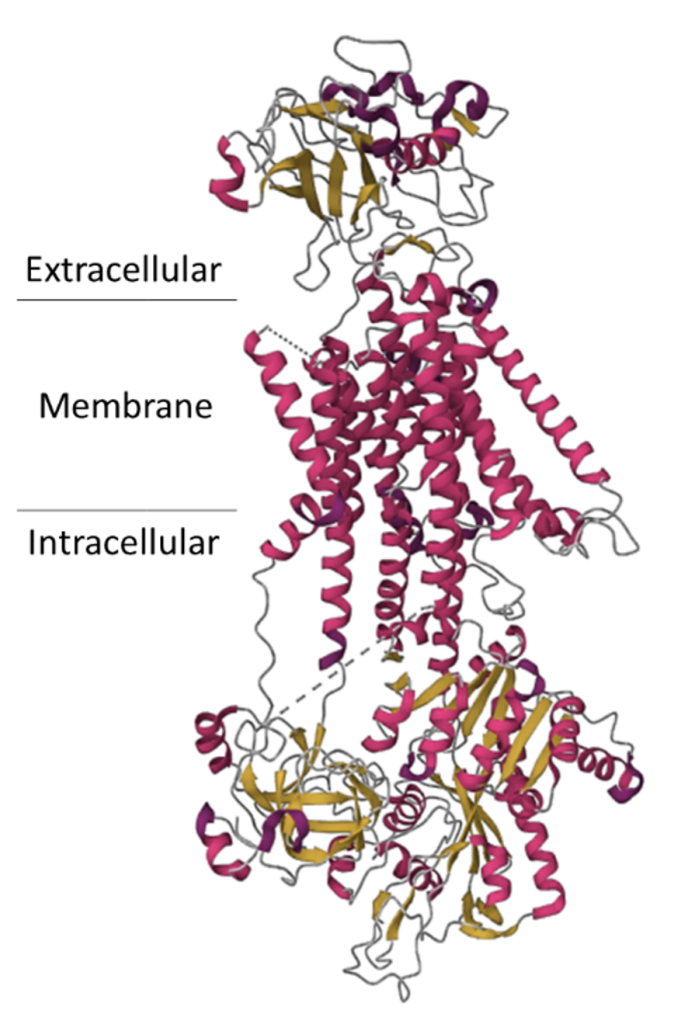
Special proteins called sodium-potassium ATPase transporters maintain the concentration balance between the inside and outside of the cell. These membrane-bound proteins use energy from ATP to pump sodium out of the cell and potassium in, creating the membrane potential that, in turn, allows potassium to regulate the volume and pressure of cells as well as transmit nerve cell impulses, contract muscle tissue, and maintain proper kidney and heart function. In fact, they’re so important to life that scientists estimate we spend about 20 to 40 percent of our resting energy maintaining membrane potentials through ATPase transporters!
Scientists often look for potential medications in nature, called natural products. Some researchers are exploring the toxin-packed venom of cone snails found in the waters near Australia, Indonesia, and the Philippines. They’re analyzing and testing the venom to find out what the toxins do, including how they target potassium channels, in the search for effective medications. They’ve already identified one toxin that blocks calcium channels and is 1,000 times more powerful than morphine in treating certain kinds of chronic pain.
Pick Your Potassium
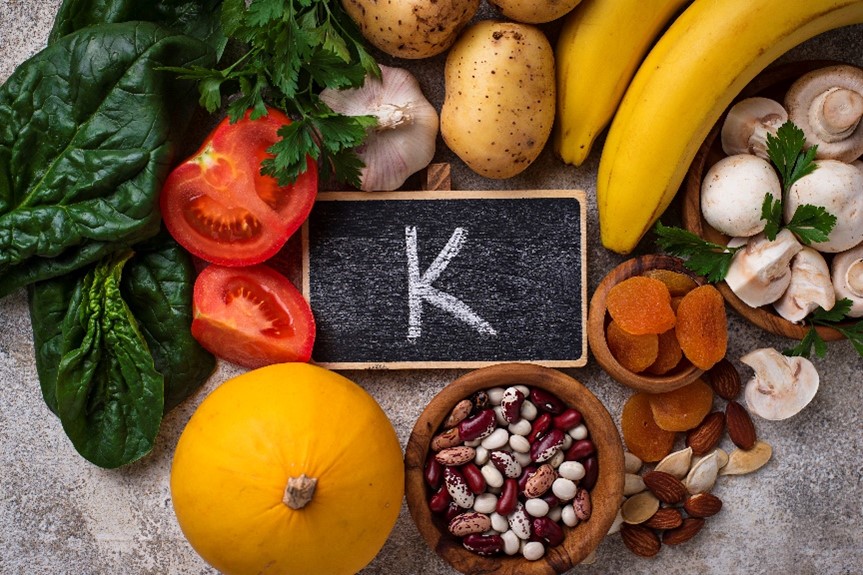
For our bodies to obtain potassium, we must consume the essential mineral from our diets. Bananas are known for their high potassium levels, but many other fruits, vegetables, beans, dairy, and meats are also excellent sources. Many Americans don’t consume enough potassium to meet the recommended daily amounts despite its presence in a variety of foods. This deficiency can lead to elevated blood pressure, calcium depletion in bones, and an increased risk for kidney stones.
NIGMS-Supported Potassium Research
Many NIGMS-funded scientists conduct potassium-related research. Some of them are:
- Determining the mechanism by which calcium opens and closes some potassium channels that are associated with many health conditions, including high blood pressure, asthma, epilepsy, sleep disorders, and Alzheimer’s disease.
- Studying potassium pumps in bacterial membranes to understand how they transport potassium into the cell to maintain pressure.
- Exploring how cells regulate the activity of certain potassium channels that may be involved in several disease states like chronic pain, arrhythmia, and depression. Insights could lead to new treatments.
- Investigating potassium ion channel responses to anesthetics, including how they prevent pain and awareness but also cause side effects in the heart, airways, and other smooth muscles during general anesthesia. Having a better understanding of these drugs’ mechanisms may lead to safety improvements in their use.
Check out our other posts on elements.


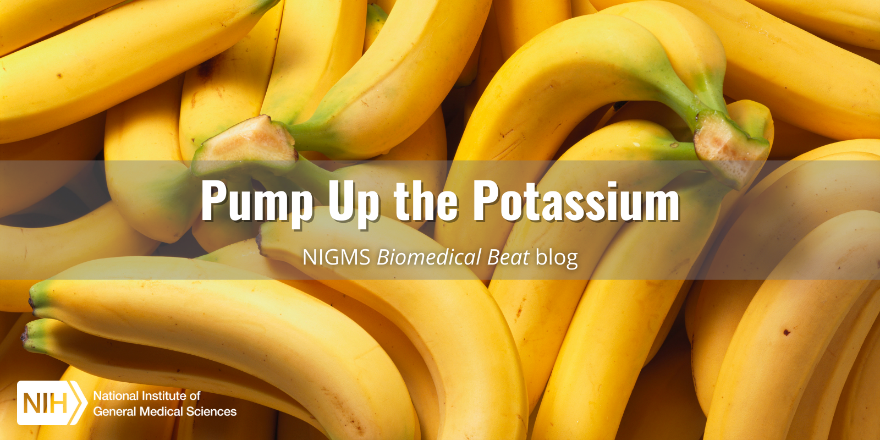
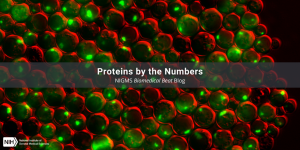




How do we know when we are getting heart palpitations, if we are getting too much or not enough potassium?
Thanks for your comment. While low levels of potassium can be a trigger for arrhythmia (irregular heartbeat) according to the National Heart, Lung, and Blood Institute, you should talk with your doctor about your individual situation. Arrhythmias can have many causes and, if left untreated, can become life threatening.